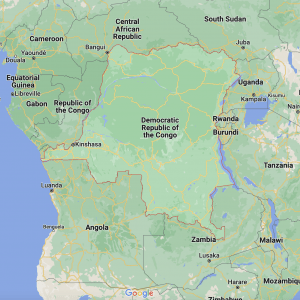India’s new immigration law threatens civil liberties, fuels exclusion
Although law does not mention any religious community, its structure and potential implementation align with a pattern of anti-Muslim exclusion that has become characteristic of ruling party’s Hindu nationalist agenda
NEW DELHI, India (MNTV) — Indian parliament recently adopted Immigration and Foreigners Act, 2025, giving unprecedented powers to authorities with respect to surveillance, detention, and deportation — with little oversight or recourse.
Touted as a modernization of colonial-era immigration laws, the Act repeals four older statutes, including the Foreigners Act of 1946 and the Passport (Entry into India) Act of 1920.
But experts argue it marks not progress, but regression — concentrating immigration authority in the hands of the executive and side-lining both due process and constitutional protections.
Abhishek Manu Singhvi, a senior Supreme Court lawyer and parliamentarian, described the law as a “legislative monster masquerading as reform” and “less law, more license to harass.”
At the heart of the criticism is the Act’s expansive Section 3, which allows the central government to define who qualifies as a foreigner and on what grounds they may be denied entry, detained, or deported.
In an article published in the widely circulated Hindustan Times, Singhvi stated that the law has vaguely worded threats to “sovereignty,” “security,” or even “public order.”
The decision of the immigration officer — regardless of rank — is deemed “final and binding.” There is no provision for appeal, independent review, or judicial intervention. Singhvi warns that this transforms even a junior officer into “judge, jury and executioner,” eliminating meaningful safeguards.
“In the US, an immigration judge exists; in Canada, an appeal board. In India now, we have a constable with a clipboard,” Singhvi wrote.
The Act also bars voluntary exit from India for visa overstayers, and allows indefinite detention — even in the absence of a criminal charge — until the government resolves an individual’s status. Critics say these provisions amount to detention without trial and defy international legal norms.
Sections 8 through 10 require landlords, universities, hospitals, and other institutions to report the presence and movement of foreigners, turning civilians into agents of state surveillance. The burden of monitoring shifts to ordinary citizens and service providers, under threat of punishment for non-compliance.
Singhvi likens this to a dystopian reality: “Every cough, every address change, every college or hospital admission must be reported… The State now does not just monitor you, it also recruits your neighbors to do so.”
Threat to Muslims
In another controversial provision, Section 14 allows the government to shut down premises “frequented by foreigners” without evidence or explanation.
Legal experts warn this could be used to arbitrarily target mosques or madrasas that host foreign students or members of international Islamic organizations like the Tablighi Jamaat.
Although the law does not mention any religious community, its structure and potential implementation align with a pattern of anti-Muslim exclusion that has become characteristic of the BJP’s Hindu nationalist legislative agenda.
Past laws such as the Citizenship Amendment Act (CAA) openly excluded Muslim refugees, while privileging non-Muslims from neighboring countries. Critics argue the new immigration law continues this trajectory — enforcing exclusion not through faith declarations but through documentation burdens.
A Bengali-speaking Muslim worker in Kolkata who has lived in India for over a decade but lacks proof of birthplace could be penalized for “illegal entry.” Under the new Act, they may be fined amounts that equate to years of income — or face detention and deportation.
The law privileges those with access to documents, legal counsel, and state recognition, while punishing the undocumented and the poor. Singhvi argues that the law “criminalizes the idea of foreignness” — creating pathways of selective inclusion based on political utility rather than humanitarian need.
The experience of the Assam NRC (National Register of Citizens), which excluded nearly 1.9 million people, mostly Bengali Muslims and Hindus, looms large. Many of them were declared “infiltrators” and denied citizenship — with no right to appeal. The new immigration law, critics fear, nationalizes that model.
Another troubling dimension is the law’s potential use as a political weapon. The BJP government has repeatedly used laws such as the Unlawful Activities (Prevention) Act (UAPA) and sedition laws to suppress dissent, arrest journalists, and detain students and opposition leaders.
Under the new Act, dissenters with foreign ties — including activists, scholars, and journalists — could be designated as security risks or “undesirable aliens,” paving the way for surveillance, harassment, or even deportation. Foreign nationals critical of the government could be expelled without cause.
“Would a tourist engaged in a heated café debate on Indian politics be deemed a threat?” Singhvi asked in his OpEd. “The answer is yes.”
Violations of constitutional guarantees
Perhaps the gravest concern is the constitutional damage this law may inflict. Article 14 (equality before law), Article 21 (right to life and liberty), and Article 25 (freedom of religion) apply not just to Indian citizens, but to all persons. Yet the Act bypasses these rights with vague justifications and executive fiat.
There is no provision for guaranteed legal aid, no timelines for detention reviews, and no requirement for transparency in deportation decisions. Even consular access — a basic norm in international law — is not explicitly guaranteed.
Singhvi warns that this law disregards India’s constitutional legacy. “Courts have consistently said that liberty cannot be trampled by a junior officer’s unchecked pen.”
While a handful of sections (21, 23, 24, and 25) allow for compounding of offences — meaning some violations may be settled through fines — critics say these are “oases in a desert of draconian intent.”
The Immigration and Foreigners Act, 2025 is not just a policy shift — it’s a paradigm shift in the way India defines belonging, citizenship, and civil liberty. Far from being a neutral reform, it embeds exclusion and surveillance into law, under the guise of national security.
As Singhvi starkly concludes, “This Act is not merely unconstitutional. It is un-Indian. It replaces due process with discretionary despotism, the Constitution with control, and compassion with contempt.”










